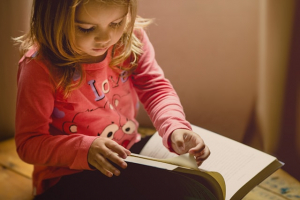XpatAthens
How To Involve Your Child Into Summer Cleaning Their Room
If there’s a topic you’re interested in and would like to learn more about you may contact me via email. For more information about me and my work check the XpatAthens Directory or visit my website. Because this is your life!
How Not To Load Your Child With Extracurricular Activities
But how many extracurricular activities will they have? How much will they – and you with them – be running around? The COVID-19 quarantines we’ve had have made me reconsider a few things. I’m not saying it was better that we all stayed and worked from home. However, the rhythms of our daily lives have become softer, more humane. We have had more opportunities to get closer to our children and to get to know them better; to recognize their real needs and wants; to give and receive those hugs that we “used to forget” because of all the running around.
So how about thinking a bit differently now that we are back in the “school mode”? Because there is also studying for school. And while some days studying and activities may go well together, most kids rush – and so do you – from activity to activity, and by the time they get home they are extremely tired and sleepy. Then there’s no time to study let alone time for conversation, play, and hugs.
How about rethinking the phrases we, parents, tell them? Phrases like “rush, you don’t have any time left, grab a fruit and go to bed…you have school tomorrow and an early morning wake up”? We certainly don’t want to have them so stressed to do everything (because they do not want to stop any of the activities they’ve chosen), without a single break. We don’t want robots, we want children. And of course, we don’t want to be so worried about them catching up on everything and making it to bed on time.
It’s better to think about how we may help our children and ourselves in a different way. So that we do not become their “alarm clock” and they learn how to be responsible.
One way is to discuss with your child and create together a weekly schedule that includes studying, extracurricular activities and some free time. Put it up in their room or in a visible spot somewhere in the house. Talk about possible ways to carry out the program and give your child the opportunity to implement it. Observe how things are going for a couple of weeks and ask your child’s opinion as well. You are always there to help if something needs to be changed. And one last thing that we often forget: Remember that studying is not your responsibility.
Originally published on: itsmylife.gr
True Love Should Not Hurt
- Love is all about giving the space to the other person to grow and evolve and to support them even when we may not agree with their choices.
- Love, real love, should not hurt or harm us in any way.
- Love should not make us do something against our will.
- Love should not make us feel dirty or guilty.
- Love should not imprison us. On the contrary, it gives us wings to fly.
- Love includes respect.
- Love is a beautiful, warm feeling; not one we want to run away from.
Originally published on: itsmylife.gr
How To Boost Your Child’s & Your Own Self-Confidence
Do you remember those days when you were going to school? Maybe your life was a bit simpler and you didn’t have so many extra-curricular activities – if any. But how did you feel at the beginning of each school year? Was it easy for you to make friends or were you anxious about it? Were the other kids nice to you or not? How did you deal with it? Were your parents helpful or did they put more attention on your performance as a student?
Why am I asking you all these questions? Because it’s important to put yourself into your child’s shoes and pay attention to their feelings. Are they happy going to or coming back from school? Do they talk about their friends? Perhaps you will notice small changes in their behavior. Instead of taking it personally try to see what the real story is.
It’s not easy for everyone to make friends. My daughter changed school last year and I know she’s still very conscious about making friends. She’s also very sensitive and this tends to complicate things sometimes. Moreover, in her effort to be accepted by her peers she may do or say something she wouldn’t otherwise. This doesn’t help her self-confidence.
So instead of focusing mainly on her academic performance, I try to understand how she feels and try to boost her self-confidence. One way I do this is by using some phrases I have found to be helpful. They may serve you too:
- Your opinion matters.
- It’s absolutely ok to say no.
- Not everyone will like you. And that’s ok.
- You are beautiful just the way you are.
As for me, I wish my parents would have told me these phrases or taught me to think this way when I was a child. They would have saved me from a lot of trouble as these principles apply to all areas of our lives whether we are children or adults – school, work, family, friends, and relationships in general. It’s a great life attitude to have and one that our children will certainly benefit from.
Originally published on: itsmylife.gr
Empowering Hearts: A Guide to Cultivating Children's Emotional Intelligence
- Self-awareness: Recognizing and understanding one's emotions and their impact on thoughts and behaviors.
- Self-regulation: Managing and controlling emotional reactions, including anger, frustration, and anxiety.
- Empathy: Understanding the feelings of others, encompassing both recognition and responsive engagement.
- Social skills: Facilitating effective communication, cooperation, and the establishment of healthy relationships.
- Encourage emotional expression: Foster an environment where a child can express feelings without fear, demonstrating that it's acceptable to experience a range of emotions.
- Label feelings: Teach the child to articulate their emotions, aiding in a better understanding of their emotional state.
- Encourage introspection: Prompt the child to reflect on their feelings and triggers, fostering an association between emotions and specific situations.
- Relaxation Techniques: Introduce simple techniques like deep breathing and counting to ten to empower the child to manage emotions effectively.
- Self-Regulatory Model: Lead by example, demonstrating self-control in your emotional reactions to provide a tangible model for the child.
- Set limits: Establish clear rules and emphasize consequences, highlighting the significance of self-regulation.
- Active Listening: Teach the child to actively listen, show interest in others' feelings, and ask questions to comprehend their emotional state.
- Embrace diversity: Encourage participation in activities that expose the child to diverse backgrounds, fostering empathy and understanding.
- Read and discuss books: Select literature that explores different characters and emotions, using stories as a platform to discuss empathy.
- Encourage cooperation: Promote teamwork to teach children cooperation and conflict resolution.
- Role play: Facilitate social interaction practice through role-playing scenarios.
- Offer guidance: Provide advice on appropriate social behaviors such as sharing feelings, taking turns, and resolving conflicts peacefully.
Originally published in Greek on: loveyourselfmagazine.com

Love Yourself is a comprehensive Greek media platform dedicated to embracing mindstyle as its fundamental essence. It advocates for a wholesome lifestyle that nurtures not only our soul, mind, and body but also promotes a positive and sustainable attitude towards the planet we call home. For more information, visit Love Yourself's website!
Could You Be Imposing Your Own Desires Onto Your Children?
Originally published in Greek on: loveyourselfmagazine.com

Love Yourself is a comprehensive Greek media platform dedicated to embracing mindstyle as its fundamental essence. It advocates for a wholesome lifestyle that nurtures not only our soul, mind, and body but also promotes a positive and sustainable attitude towards the planet we call home. For more information, visit Love Yourself's website!
Empowering Kids: Nurturing A Love Of Reading In Today's Digital Age
Originally published in Greek on: loveyourselfmagazine.com

Love Yourself is a comprehensive Greek media platform dedicated to embracing mindstyle as its fundamental essence. It advocates for a wholesome lifestyle that nurtures not only our soul, mind, and body but also promotes a positive and sustainable attitude towards the planet we call home. For more information, visit Love Yourself's website!
Can You Raise Happy Children?
Let’s address this question with a profound truth: parents wield enormous influence over their children's emotional well-being. The parental impact on shaping children’s happiness is well-documented and has transformative potential.
Let’s explore the various ways parents hold the key to cultivating their children's capacity for lasting happiness and fulfillment!
Being the Example
Children are keen observers, absorbing not just words but actions and behaviors of their parents. Thus, one of the most powerful ways parents can teach happiness is by experiencing it themselves. By cultivating our own sense of well-being, engaging in activities that bring us joy, and practicing gratitude, we become living examples of happiness. When children see their parents happy, they learn resilience, optimism, and zest for life, internalizing happiness and laying the foundation for their own emotional well-being.
Emotional Intelligence: The Power of Connection
Emotional intelligence is a crucial predictor of a child's long-term happiness. By promoting skills of open communication, empathy, and emotional regulation, parents equip their children with the tools to navigate life’s ups and downs with resilience and grace. Encouraging children to express their emotions freely, validating their feelings, and providing a safe space to explore their inner world fosters a sense of emotional security and self-awareness, essential for happiness.
Positive Environment: Planting the Seeds of Happiness
The environment serves as the fertile ground where children's emotional well-being takes root and flourishes. Parents can create a positive atmosphere by infusing daily interactions with warmth, affection, and encouragement. Celebrating successes, no matter how small, and offering support and reassurance during tough times cultivates a sense of competence and confidence in children, boosting their self-esteem and resilience. Additionally, creating bonding rituals—such as family meals, shared activities, or bedtime routines—fosters a sense of belonging and strengthens family ties, promoting feelings of happiness and security.
Loving Imperfections
In the pursuit of happiness, it's important for parents to embrace their children’s imperfections as an integral part of growth. Recognizing and learning from mistakes, reframing challenges as growth opportunities, and demonstrating compassion show that failures are a natural part of life’s journey. This way, parents instill a positive and resilient mindset in their children, allowing them to live with optimism and courage—fundamental pillars of happiness.
As parents, it is our responsibility to create an environment where our children feel safe to explore, express themselves, and learn from both successes and failures. Through our actions and behaviors, we have the power to shape their perceptions of themselves and the world around them.
Let’s embark on the parenting journey with intention, compassion, and a steadfast commitment to cultivating a legacy of happiness that will endure for generations. In doing so, we not only ensure our children’s well-being but also contribute to creating a brighter future for all.

Love Yourself is a comprehensive Greek media platform dedicated to embracing mindstyle as its fundamental essence. It advocates for a wholesome lifestyle that nurtures not only our soul, mind, and body but also promotes a positive and sustainable attitude towards the planet we call home. For more information, visit Love Yourself's website!
Embracing Our Uniqueness: How To Teach Our Children The Importance Of Self-Love
Self-Love: The Cornerstone of Psychological Well-Being
We often confuse self-love with narcissism, but while the latter is a personality disorder, the former is the foundation of a healthy and fulfilling life. Self-love is not about self-obsession or vanity; rather, it is essential for cultivating a positive relationship with oneself.
Numerous studies have revealed the tangible benefits of self-love. Individuals who cultivate self-love tend to have higher self-esteem, emotional well-being, and improved overall welfare. When people love and accept themselves, they see themselves as valuable, capable, and worthy of happiness, which in turn enhances their confidence in various aspects of life.
Most importantly, self-love plays a critical role in strengthening mental resilience. When children love themselves, they develop an inner strength and confidence that helps them respond to life's challenges. They become less dependent on external validation, making them more adaptable and better equipped to handle setbacks.
Teaching Self-Love to Our Children
Be Role Models: Children learn by observing the adults in their lives. If we love ourselves and demonstrate it through strategies like positive self-talk, our children will follow suit.
Encourage Open Communication: Create a safe environment for children to express their thoughts and feelings without fear. Encourage them to talk about their insecurities and fears, and provide empathetic, non-judgmental support.
Promote Self-Discovery: Every child needs to embark on a journey of self-discovery, and the role of every parent and guardian is to be a companion, not a captain. Children will discover their interests, likes and dislikes, and dreams for the future on their own. We should encourage them to engage in activities that bring them joy and a sense of fulfillment, celebrating their achievements, no matter how small.
Limit Negative Influences: Childhood is generally a very fragile period, and a child’s self-perception can be negatively affected by external factors like social media. Talk to children and teach them to use critical thinking to reject unrealistic beauty standards and ideals of success.
Provide Unconditional Love: Attachment theory highlights the importance of a secure emotional base from which children explore the world and, by extension, themselves. Remind children that your love is unwavering and not dependent on their achievements or behavior. Only then will they learn to love themselves, day by day.
Incorporating these strategies into our parenting is vital for instilling the value of self-love in children. This lays the foundation for a more confident and emotionally healthy future.
As we embark on this journey together, we must remember that self-love is not just about feeling good about ourselves. It is an ongoing process that equips us with the courage and resilience to face difficulties, and it is the only way to achieve true happiness!
How To Prepare Your Child For Going Back To School
September is here and with it comes the exciting start of a new school year. But after a long, carefree summer, getting back into the school routine can feel like a big change. How can you make sure your child is ready to tackle their first day with confidence and enthusiasm? By following these fun and practical tips, you can turn the back-to-school transition into an exciting and positive experience for the whole family!
Create an Awesome Study Zone

Help your child design a personalized study space where they can focus and feel comfortable. Let them pick out some fun accessories like colorful organizers, inspiring posters, or even a cool desk lamp. The more they help create the space, the more excited they’ll be to use it. It’s a simple but effective way to get them into the mindset for learning!
Set Goals—And Make Them Exciting!

Instead of just focusing on grades, sit down together and brainstorm some fun academic or personal goals for the school year. It could be learning a new skill, mastering a subject, or even joining a new club. Write them down on a goal board and celebrate progress throughout the year! Goals help keep kids motivated, but making them collaborative and celebratory will keep the excitement going long after school starts.
Go on a Back-to-School Shopping Adventure

Who doesn’t love shopping for fresh supplies? Turn the annual back-to-school shopping trip into an adventure by allowing your child to pick out items that reflect their style. Whether it's a new backpack, colorful notebooks, or personalized pencils, giving them some say in their supplies adds excitement and a sense of ownership over the upcoming year.
Create a Morning Routine Countdown

Getting out the door in time for school can be hectic. Make it easier by practicing your morning routine a few days before school starts. Turn it into a game by setting a timer and seeing how quickly they can get dressed, eat breakfast, and gather their supplies. Kids love a challenge, and this will help them learn how to manage their time in a fun way!
Highlight the Excitement of a New School Year

While school can feel like a big change, it’s also a time for new opportunities and experiences. Talk to your child about all the exciting things they can look forward to: making new friends, learning interesting topics, or joining after-school activities. By focusing on the positive aspects, you can help shift any nervousness into anticipation for the adventure ahead.
Kick Off the School Year with a Family Tradition

Celebrate the start of school with a fun family tradition that your child will look forward to every year. Whether it’s a special back-to-school dinner, an ice cream outing, or a movie night, creating a joyful event around the new school year helps them feel that it’s a special and exciting time. Traditions like this can turn the focus from nerves to excitement.











